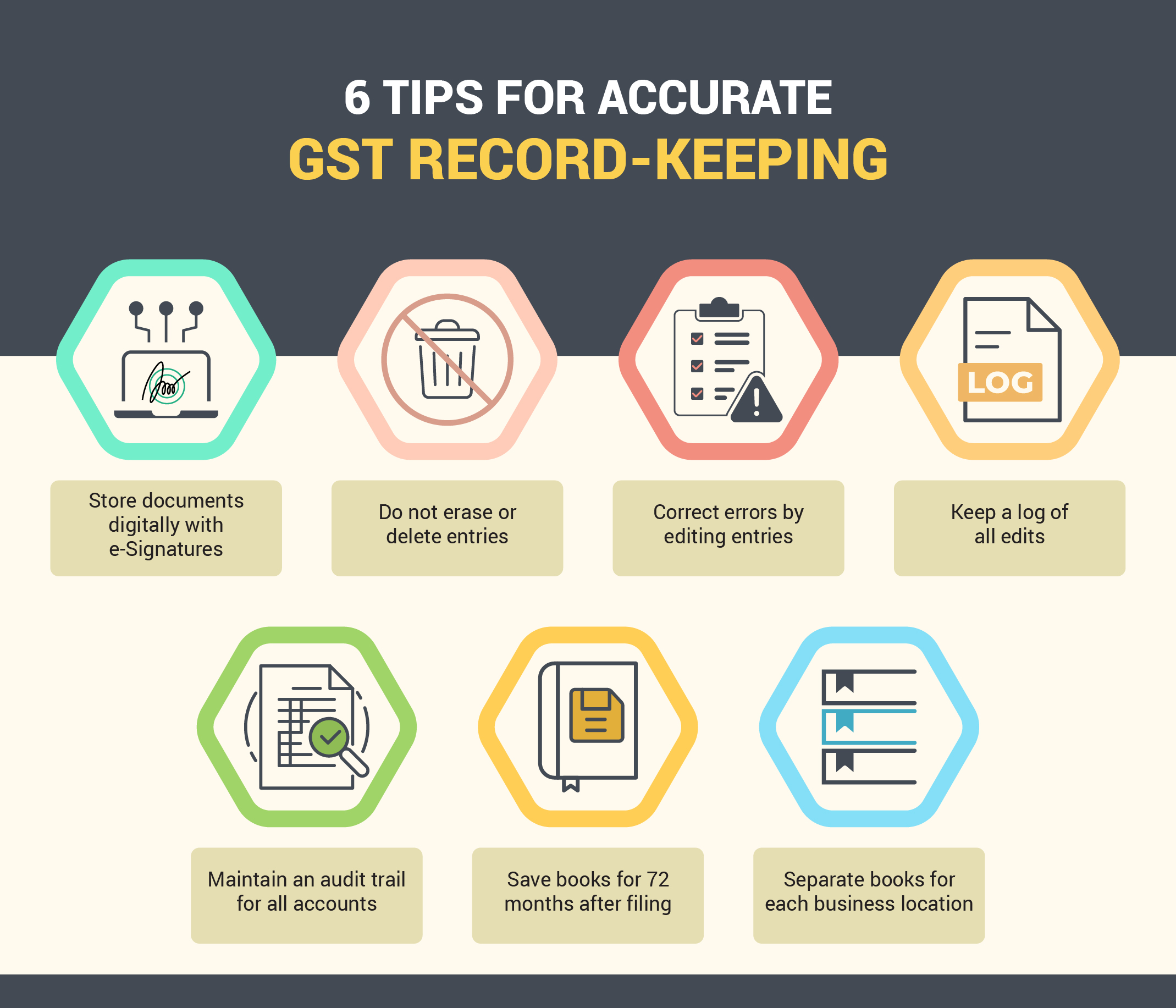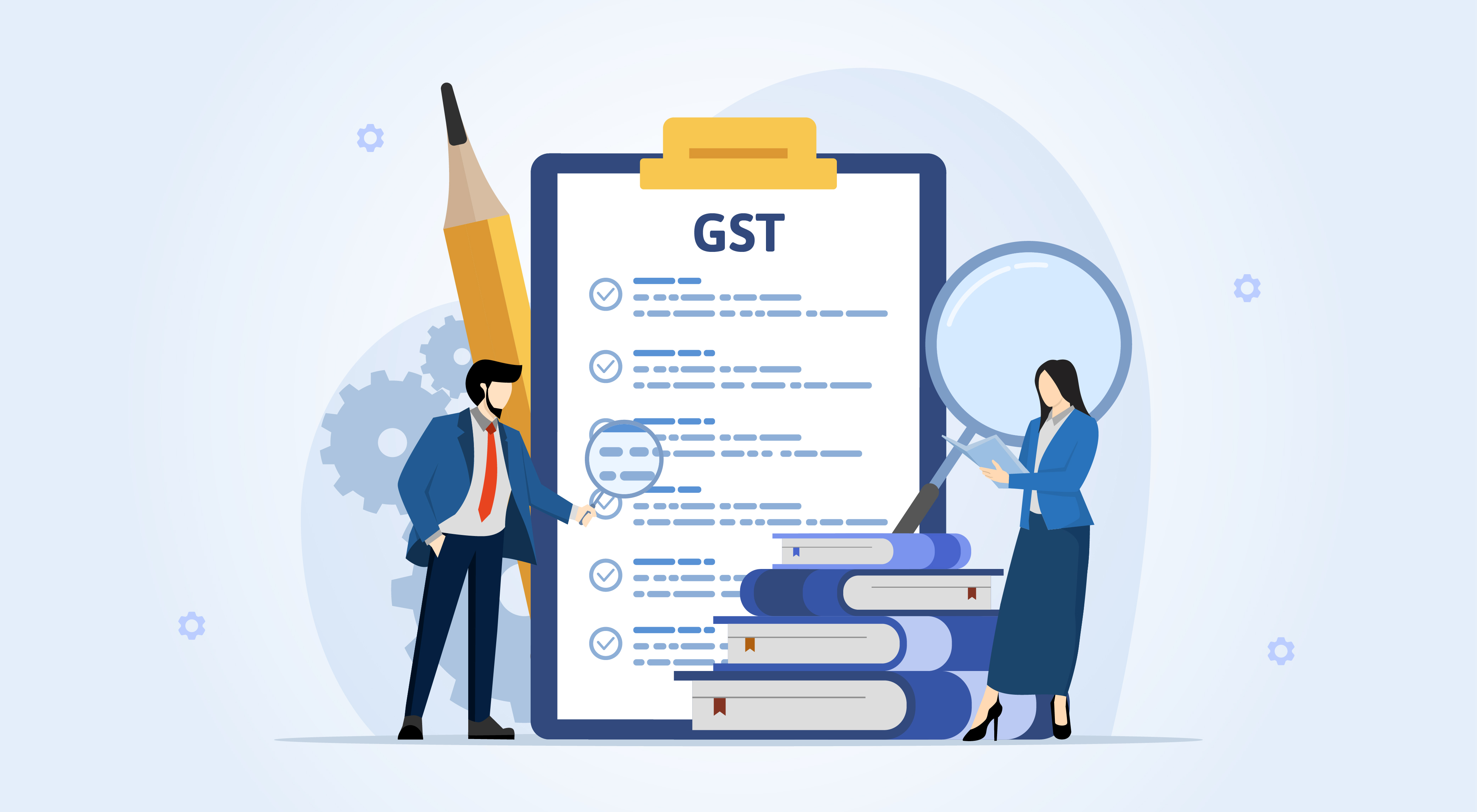Importance of Keeping GST Records Organized
There are two critical reasons why a business should keep GST records organized:- To make GST filing easier
- To be legally compliant to GST laws
Must Have Accounting Records for GST filing
The GST authority will scan GSTR 3B you have filed, study how you have arrived at your GST liability by scrutinizing the deductions you have claimed. Under GST laws, every business is required to maintain correct accounts of:- Production or manufacture of goods
- Inward or outward supply of goods and services
- Stock details of goods
- Input tax credit availed
- Output tax payable and paid

Best Practices for Managing Records and Books
Now you know every purchase and sales transaction your company has engaged in must be recorded in your books of accounts. Here are a few best practices that can help you deal with GST filing:- Make sure to record all transactions accurately as they happen.
- Set up a clear action plan to make sure all steps are taken to meet GST filing deadlines consistently.
- Make sure to set up reminders to notify you about upcoming due dates for filing GSTR 1 and GSTR-3B.
- Regularly reconcile your sales and purchase invoices with your accounting records.
- Reconcile your books of accounts with the GSTR-3B return to eliminate any errors.
- Regularly self-assess your tax and find out the tax liability to be paid.
- Regularly matching your GSTR-3 returns with GSTR-1 and GSTR-2A is key to keeping your filing consistent and accurate.
Winning the Compliance Game with Accounting Software
If you have been filing GST for a few years, you already would know that filing GST manually is a hassle. Taking each sales invoice, inputting details in GSTR 1 and then reconciling the invoice with GSTR 2A, this must take place regularly and is a time-consuming process. Plus, the task of storing invoices is no easy mountain to cross. Most businesses have adopted an accounting software to handle these redundant tasks. This is because they realized handling a full-fledged accounting department reconciling invoices and ITC claims requires significant financial investment compared to using a software. Once they adopted an accounting software, they realized that not only accounting became DIY all the invoices and other records got automatically stored. They had an audit trail to show authorities with sequentially arranged invoice data captured by the software. Not only did the accounting software make bookkeeping easy but GST compliance was handled as well. Have a look at how an accounting software can automate and simplify GST compliance:- Integrated way of managing books of accounts
- Records all transactions and logs an audit trail
- Auto generation e-Invoices and e-Way bills
- Auto reconciliation of GSTR-2A and GSTR-2B
- Prevention, detection and correction capability










